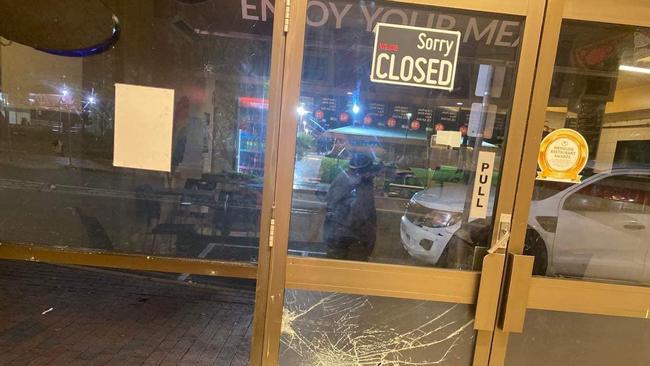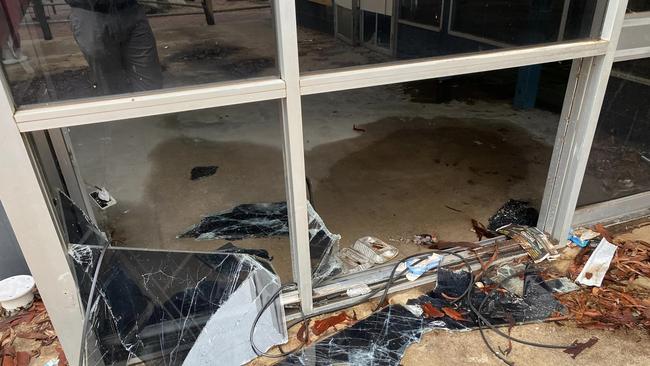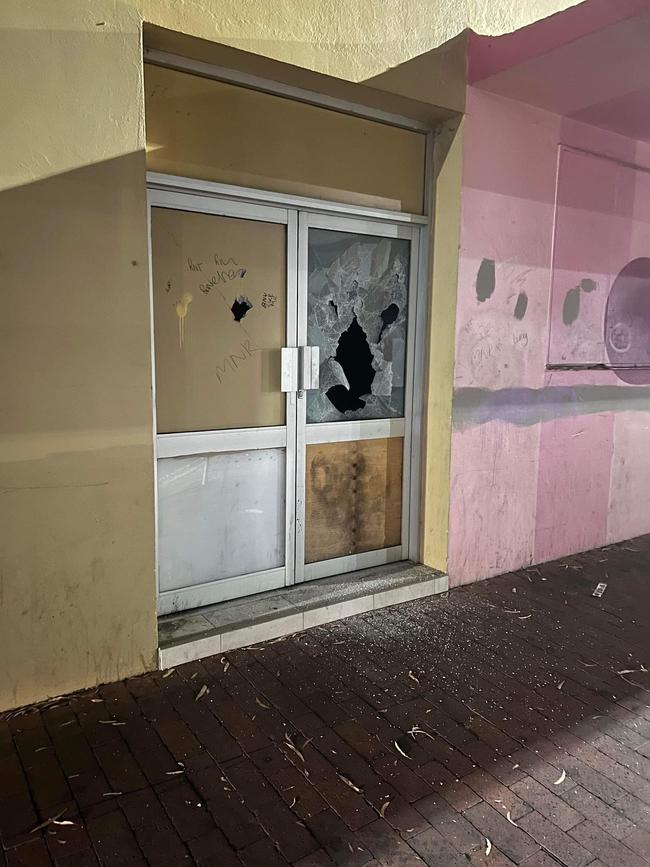Elders ready to intervene in Alice
The Albanese government has rejected calls to send federal police despite a wave of crime among young residents.

The Albanese government has rejected pleas to send federal police to stem the wave of violent crime engulfing Alice Springs, as Aboriginal elders in remote communities plan their own emergency intervention to remove young troublemakers from town.
Alice Springs Mayor Matt Paterson met Attorney-General Mark Dreyfus on Thursday amid claims Northern Territory police had lost control of the CBD, with 300 people arrested in the town of 25,000 in the past seven weeks alone.
The local Woolworths was forced to close on Sunday after a 13-year-old boy entered the store brandishing a machete.
At a meeting of the Aboriginal community of Kintore, about 640km west of Alice Springs, locals agreed to “send men to town” to “clean up our kids”, who had fled communities between Alice Springs and Kintore and were living in town camps on the outskirts of Alice Springs.
“If there are any kids from those communities, they will be headed back out bush,” a Kintore elder promised.
Darren Clark, a local of 25 years, described that as “the most positive” news he’d heard from the Indigenous community “in a long time”.

But Mr Paterson said it was vital the federal government also deploy the AFP to address the soaring rates of violent crime.
Mr Paterson said while he appreciated the $14m community safety package for Central Australia Labor committed to ahead of the May election, it wasn’t enough. “People are leaving Alice Springs because people don’t feel safe … health workers are leaving, social workers are leaving. If this is not addressed we’ll turn into a fly-in, fly-out town,” he told The Australian.
“Everyone is so anxious, I can’t even describe it. Getting locked in a shopping centre because a 13-year-old is wielding a machete is hard to fathom. People are waking up to young people with weapons in their bedroom holding them hostage.
“This issue needs to be known nationwide. Policing is naturally a Northern Territory government responsibility, but I’m just advocating on behalf of the community that I represent that we need more help and we need more resources here.”
Mr Paterson said alcohol, youth and adult crime and domestic violence were discussed in the hour-long meeting with Mr Dreyfus, which also included Minister for Indigenous Australians Linda Burney and Lingiari MP Marion Scrymgour.
“I hope (the meeting) was an eye-opener,” he said.
A spokeswoman for Mr Dreyfus said he had taken the time to meet with Mr Paterson.
“The policing of Alice Springs is a matter for the Northern Territory government,” she said.
“The Attorney-General met with the Mayor to discuss the situation and hear his concerns.”
The Attorney-General’s office also pointed to the $14m in federal funding to be rolled out over four years for early intervention and crime prevention, increased security infrastructure and community safety patrols.

Mr Paterson said he was “very grateful” for the funds, but that they addressed the medium- to long-term issues and were not rolling out for some time, and more urgent action was needed.
Shadow legal affairs spokesman Julian Leeser said the situation in Alice Springs was “an emergency”. “It is profoundly moving and disturbing,” he said.
“We can’t turn a blind eye to what’s happening in Alice Springs, and in particular in Indigenous communities.
“A handpass to the Territory government that continues to fail keeping people safe does not cut it.”
Mr Leeser said the Coalition was supportive of “any efforts of closer work between all three levels of government”.
Coalition leader Peter Dutton said he was concerned the lack of action would lead to vigilantism in the town and “the Prime Minister’s first priority now is to act in relation to Alice Springs”.
NT Attorney-General Chansey Paech acknowledged the Alice Springs community was “hurting” and more needed to be done to combat crime and anti-social behaviour. That included establishing a Central Australian Justice Reinvestment initiative, trialling shatter-proof glass in the CBD and introducing automatic bollards on certain streets at night to restrict vehicle access, creating safer pedestrian access.



To join the conversation, please log in. Don't have an account? Register
Join the conversation, you are commenting as Logout